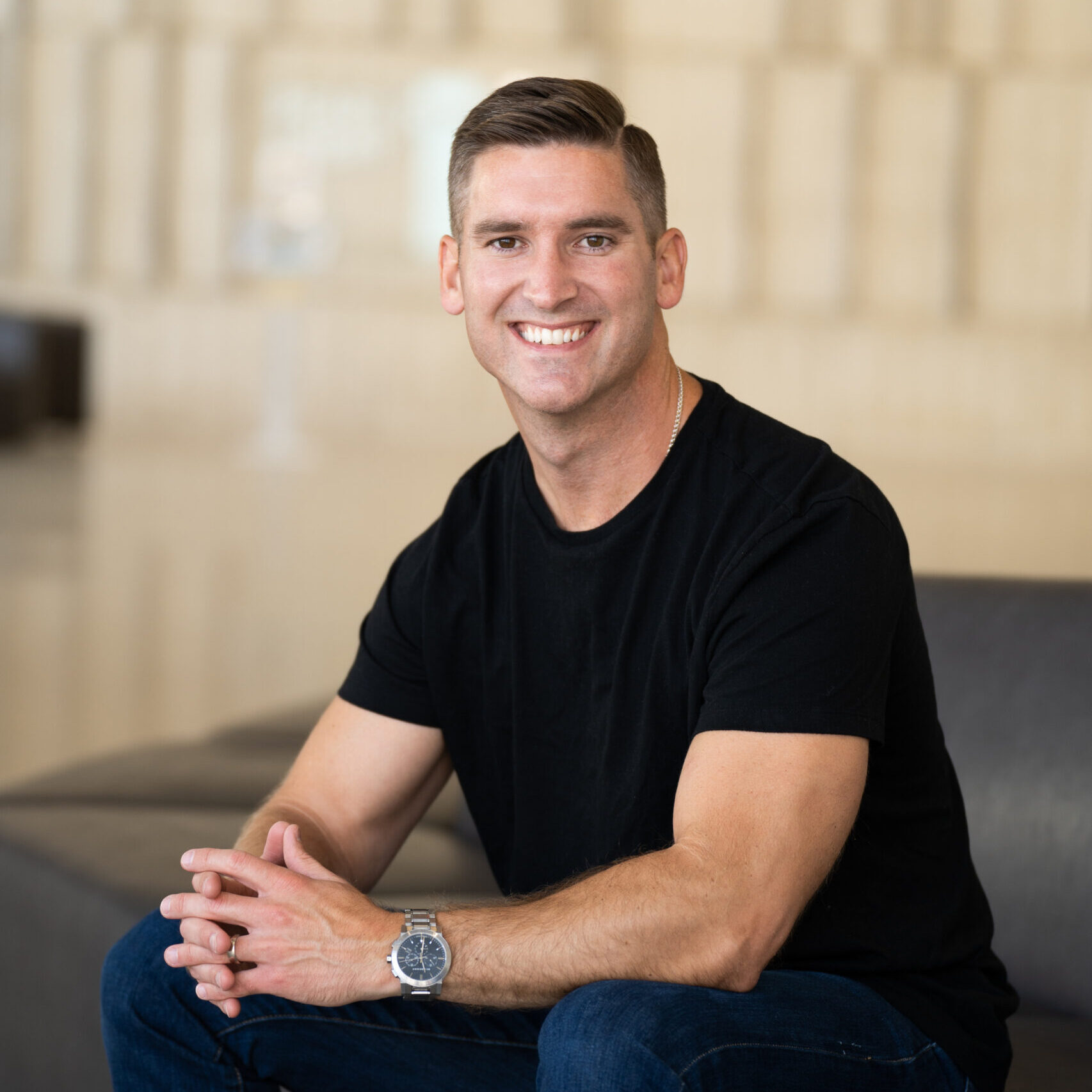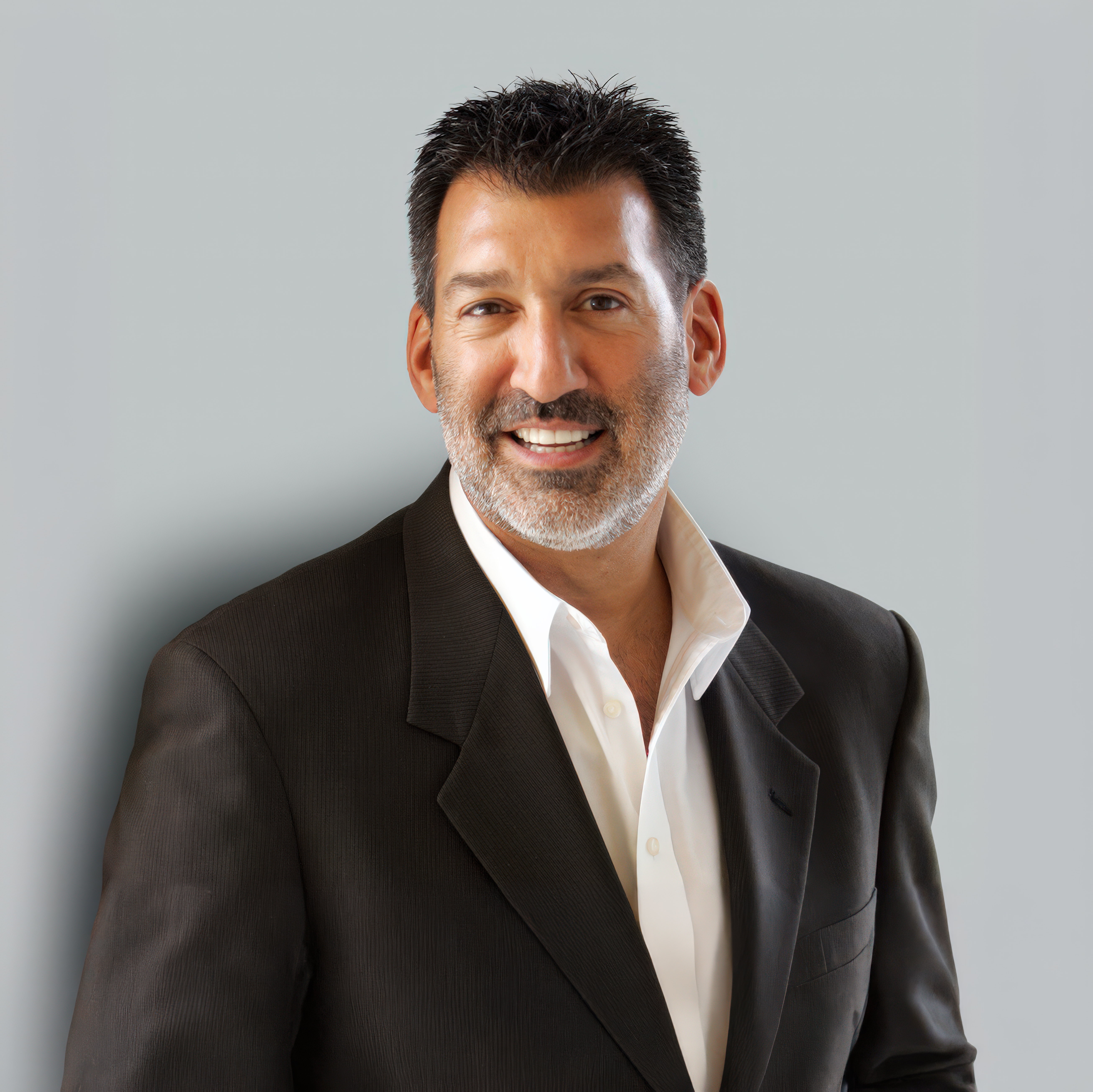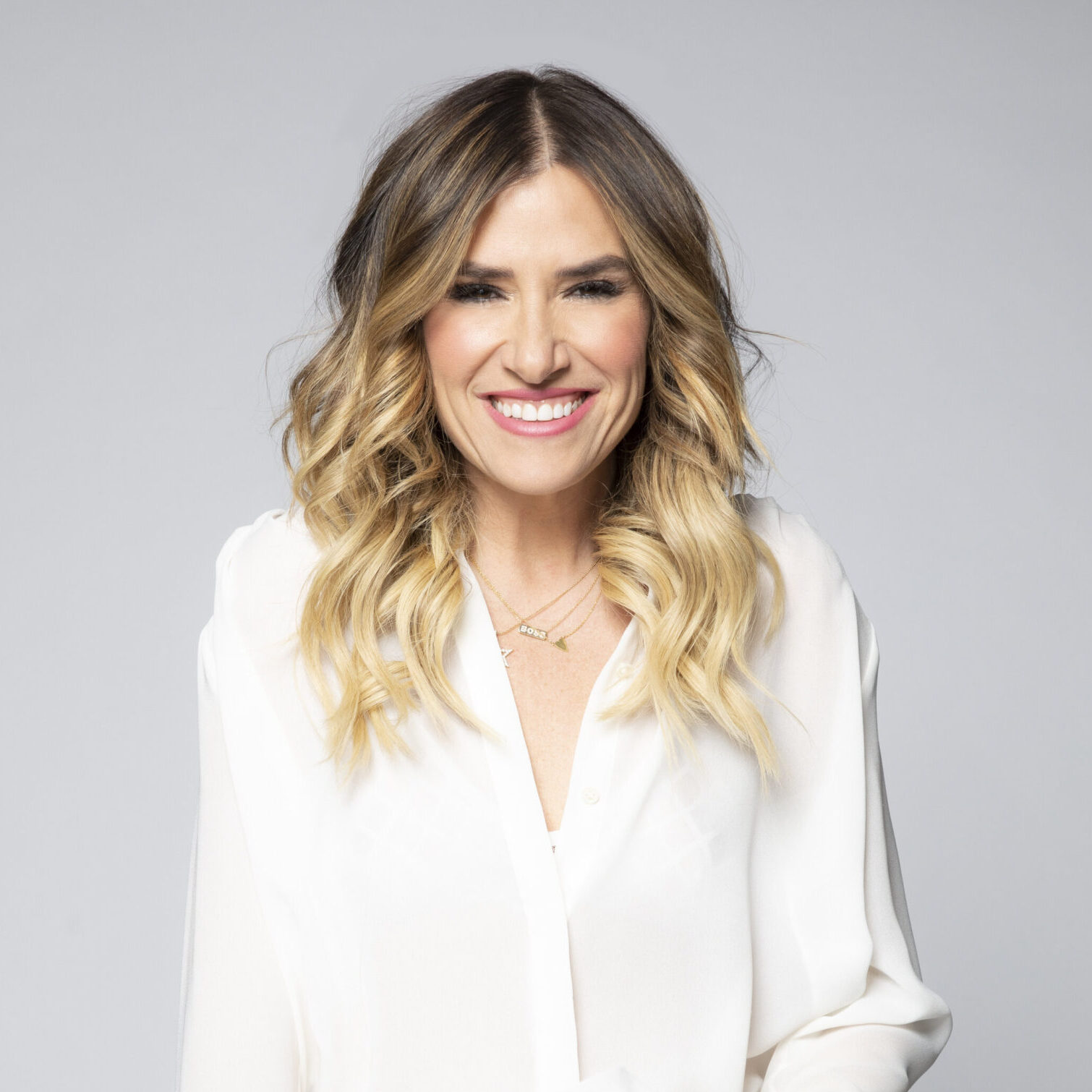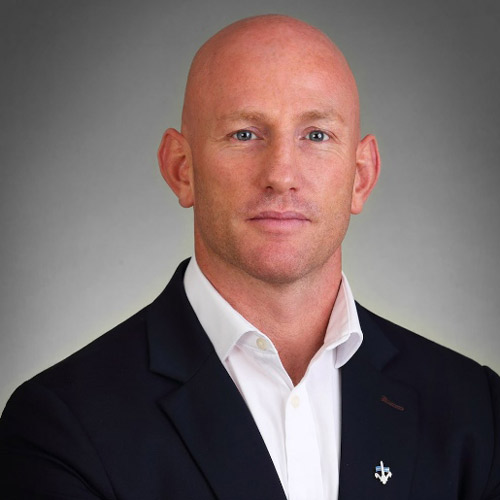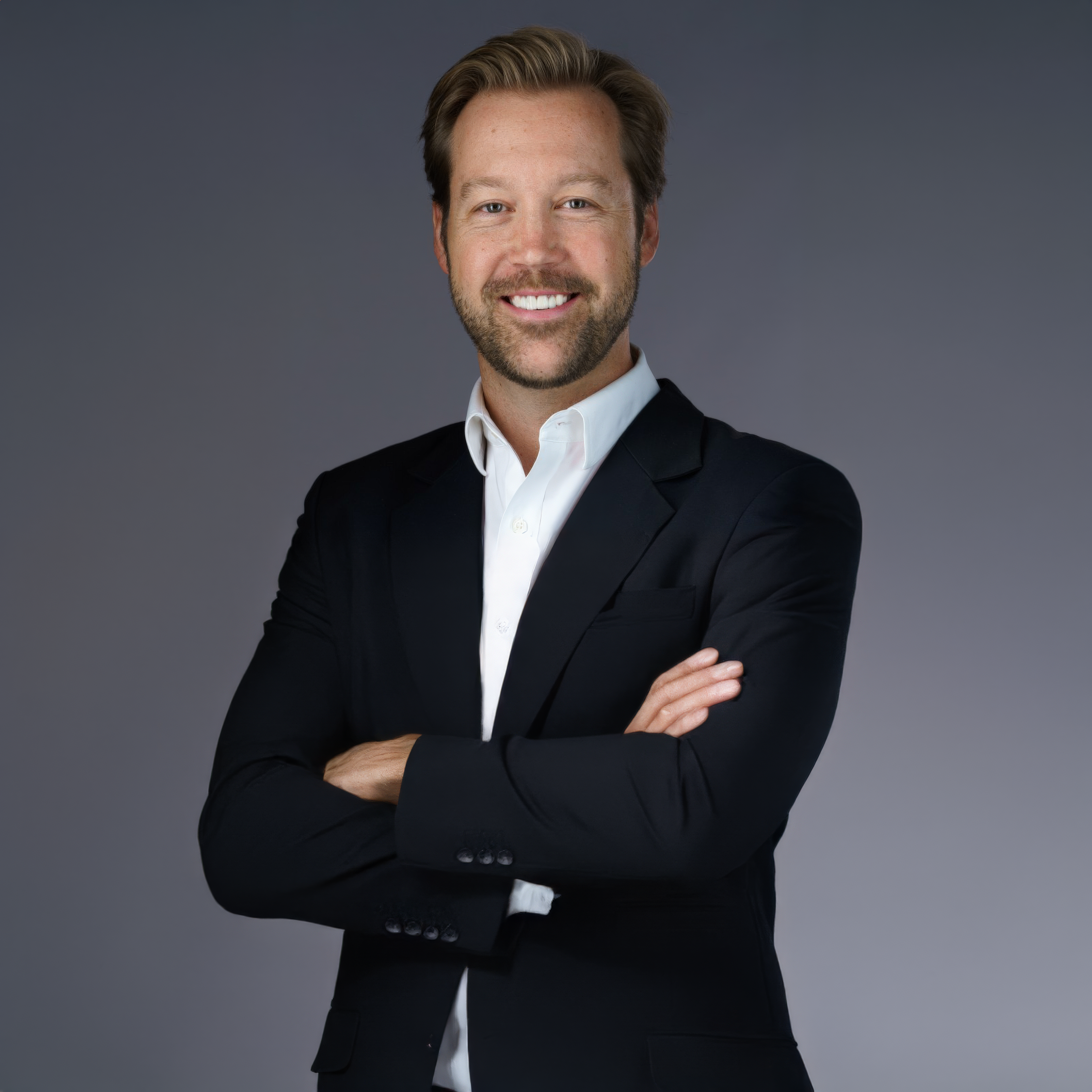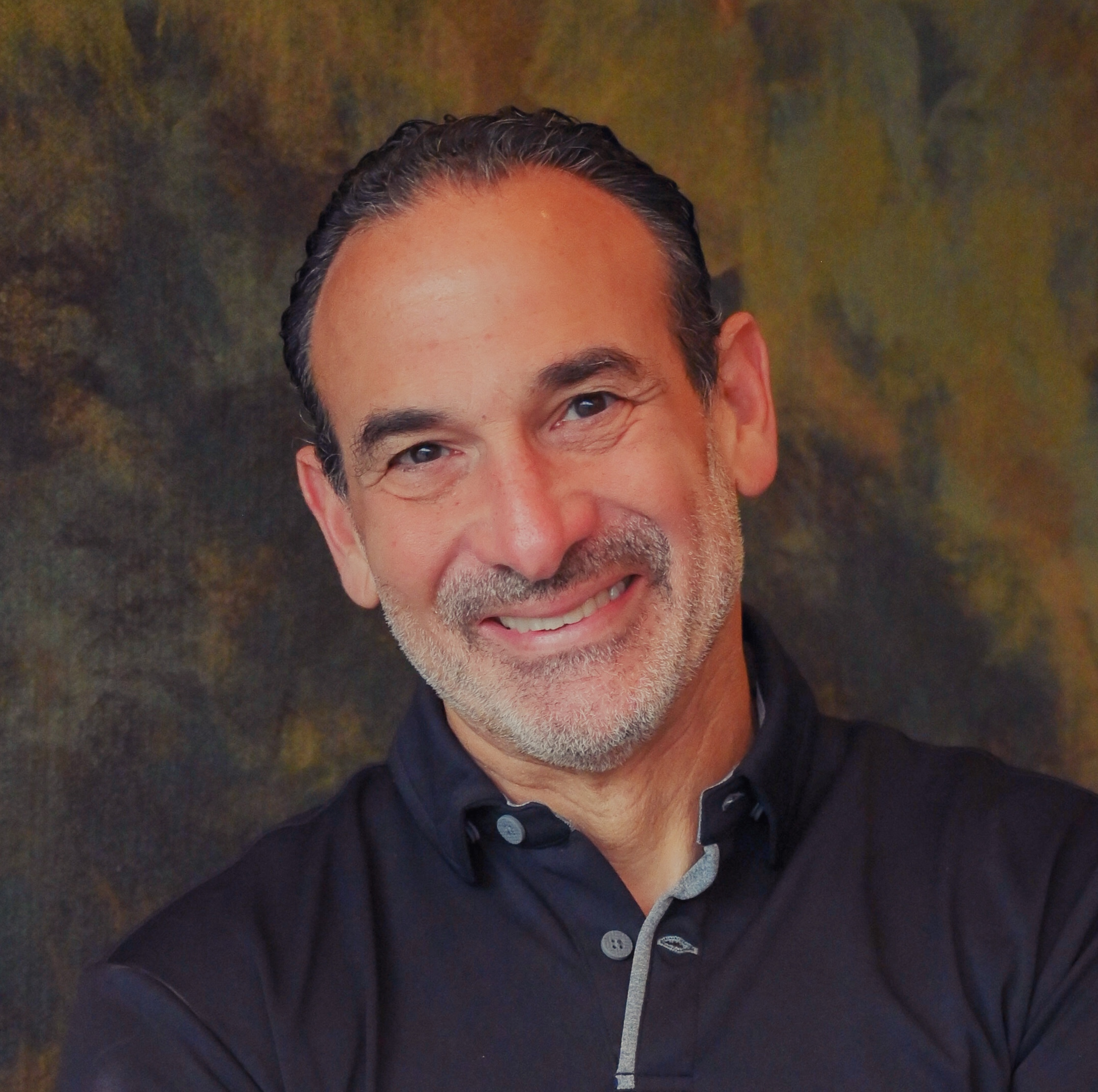RV (00:07):
Hey, brand builder, Rory Vaden here. Thank you so much for taking the time to check out this interview as always, it’s our honor to provide it to you for free and wanted to let you know there’s no big sales pitch or anything coming at the end. However, if you are someone who is looking to build and monetize your personal brand, we would love to talk to you and get to know you a little bit and hear about some of your dreams and visions and share with you a little bit about what we’re up to see if we might be a fit. So if you’re interested in a free strategy call with someone from our team, we would love to hear from you. You can do that at brand builders, group.com/pod call brand builders, group.com/pod call. We hope to talk to you soon.
RV (00:54):
Well the man you’re about to meet was introduced to me by a good friend, a trusted long-time friend. And then I just found out that Naren and I are both DU alumni. So we both went to the university of Denver and his name is Naren Aryal and he is the CEO of a company called amplify publishing and also mascot books, which are hybrid publishers. They do a lot in the nonfiction space and we’re going to talk about what hybrid publishing is and when does it make sense for people and you know, just kind of like how it works, but Naren is someone that we’ve started recommending to our clients if, if they are in the space of looking for kind of like hybrid publishing, but he’s got degrees obviously from the university of Denver, but also from Virginia tech. And he, it’s just really cool to that. He’s also a lawyers by, you know, so he’s got that training and background and he’s the author of a book called how to sell a crap load of books. So that is something that we all care about and there, and I had a conversation a while back and we started diving into some Amazon stuff that he was sharing with me that I had never heard before that I thought was super fascinating. So anyways, Naren welcome to the show. Hey,
NA (02:09):
Thank you, Rory. Great to be here. And yes, my book is how to sell a crap load of books and it underscores the importance of a, a catchy title. So there you have it. Yeah.
RV (02:20):
Yeah. Well, so I want to start with the conversation about hybrid publishing and what is that exactly? Cause I think when people think of publishing, they understand traditional publishing and like, okay, you know, literary agents and book deals and flying to New York and, you know, Simon and Schuster and penguin random house. And there’s that. And then they also understand self publishing, which is you go Amazon create space or whatever, or just like printing a book off at Kinko’s and you know, you’re an author, what is hybrid publishing and how is it kind of different from those two things?
NA (02:57):
Great question. So hybrid publishing is a hybrid between the two options that you just mentioned. And specifically what that means is we create and there are other companies that do this other than amplify. We create books that are on par in terms of editorial quality and book packaging, and provide our authors the experience that they would otherwise get from a large publishing house in terms of marketing and distribution under a slightly different model maybe not slightly the model is, are authors contribute to production related costs, but in exchange the author since they’re contributing to production related costs get the lion’s share of royalty split. So in our case, it’s 85% to the author and 15% to us as a distribution fee, which is typically just inverted from the splits that you’ll see at a large traditional house.
RV (03:57):
Yeah, so the author’s keeping 85%. You guys are getting 15%, which has a pretty spot on with the inverse of how it would work with traditional, but then they’re covering some costs out of pocket upfront where you wouldn’t normally have that with a traditional publishing. So they’re just covering the cost of like getting the manuscript edited, getting it printed, like what are all the, what are the costs here that we’re talking about?
NA (04:21):
Sure. So the costs are editorial. So sometimes we’ll work with folks that need a ghostwriter. Sometimes we’ll work with folks that give us a fully edited manuscript. So there’s editorial, anything from, or I needed coaching to various levels of editing to proofreading. So editorial is one bucket and then the other bucket is design related. So cover design, interior design. And then the other piece of it is production publishing related costs. So, you know printing of books we do eBooks and we do audio books. And then the last piece of it is warehousing and distribution. So you know, we, we have a fulfillment center from which where we ship books to retailers, invoice them collect. So the author doesn’t have to really worry themselves about that piece of it. And I said the last one, but there’s, there’s one other, we also offer a host of marketing book, launch, author platform development related services, and those are on a LA carte basis because, you know, some folks have PR folks that they’ve worked with before, some people have a social media or a website developers.
NA (05:34):
So whatever the project requires, we can sort of backfill and offer those services as well.
RV (05:40):
Got it. Yeah. Well that, even that in and of itself is pretty educational just to be just even knowing, like, what does it take to write a book? You got editorial design publishing, warehousing and distribution marketing, and then you know, in like platform development. And I think a lot of people don’t even realize those are like the big buckets. And so then and then now with hybrid publishing, you’re saying that you can get some of the kinds of things. Like, I, I think, you know, when you think of self publishing, obviously you’re covering all the costs, you’re keeping all the royalties. But you also are not getting any of the distribution. Like you almost never see a self published book on an, a, on an airport bookstand or in, you know, Barnes and noble or, you know, featured on I mean it never, almost always never on a bestseller list or something even because they’re not like index properly. So talk to us about how does distribution work and why do you need a hybrid publisher or a traditional publisher to do that? Like, why doesn’t that happen with self published books and sort of what’s the advantage of having that kind of distribution?
NA (06:53):
Yeah. So let me say this first about self publishing. I’m a big fan of self publishing today more than ever authors are successful at self publishing. The problem is today more than ever authors are self-publishing. So there’s just a glut of content out there, and it’s just very difficult to get any sort of traction in terms of a marketing and distribution specific to your question about distribution. Most self-publishing authors go by means called print on demand. So if a retailer is interested in a book and they learned that it’s print on demand they just won’t carry it. That’s just the bottom line. And so we don’t do print on demand. We publish some number of books, print, some number of books, and we use the distributors that Barnes and noble for example, uses to get stock into their store.
NA (07:42):
And we do so under you know, terms that are per industry standard. So for example, you know, we use Ingram as one of our distributors. Everyone knows Ingram. And if a Barnes and noble wants to bring in a book, they’ll go look at Ingram’s database and they’ll see, oh yeah, we can get it directly from anger. Might have to go through a publisher and author. It just makes makes it easier. There’s less resistance to going through normal channels. And, and that’s, you know, that’s the advantage of working through somebody like us is we’ve got those channels established. We got relationships with book buyers and you know, our books are, as they say, sold, wherever books are sold. You know, just because you may have a deal with a large publishing house, you know, the chances are shelf space is still limited and it’s growing more limited by the month. And so, you know, you just have to be creative in terms of where your book is being seen by your potential readers. And, and we really try to have a strategy for each and every title that we work on to soy.
RV (08:45):
And when you say book buyers, okay. So you say there’s relationships with the distributors like Ingram, which makes, which makes sense to me to go, okay. If, if I hope if I have a bookstore, whether it’s Amazon or Books-A-Million, or it’s a local bookstore, it’s just easier for me to source all the titles. I want to carry in my store from one place versus 50 or a hundred different places. So that’s, that makes sense as to go, okay, I go to Ingram and say, Hey, these are the titles I want, or we’re selling books in these kinds of categories. Can we, what do you have in that category? W when you say the term book buyer, that’s a funny term who are you talking about when you say we have relationship with book buyers?
NA (09:29):
So places like Barnes and noble, you know, they have buyers for specific categories. And, and so if you can, you know, get your book in front of those buyers. Sure. It would, it’s available via Ingram, but that doesn’t mean it’s necessarily going to get consideration. So if you can somehow get your book in front of a a person that is making a buying decision that’s always better than not. There’s no guarantees that that will result in your book being at Barnes and noble coast to coast from day one, that’s unlikely. But it definitely does help the odds.
RV (10:01):
Yeah. So in other words, you know, the contacts at these places, Books-A-Million Hudson, whatever, like whoever like Eve the, the bookstores and then independent, even independent bookstores.
NA (10:17):
Yeah. We’ve been doing this a long time. So this is our 19th year in business. So, you know, you just get to know folks, right? I mean, you mentioned Hudson news. We have two, three books there right now on the, in the airport market that that’s a little different in that it’s a pay to play it’s, co-op marketing dollars that, that we need to spend, but, you know, we know those folks and we also know, you know, the, the, the iconic, independent bookstores across the country as well. You know, those help, if you got, have a good content that is going to drive traffic into a store that’s a prerequisite, but having those relationships really helps as well.
RV (10:57):
And so you’re just helping, you’re helping the books that you publish, like your authors actually get Barnes and noble to say, yeah, I want to carry that, that title at our store on our website. And that’s what you’re talking about. If you’re self published author, your book probably isn’t even carried by Ingram. And if it is, there’s nobody at Ingram calling on, Books-A-Million saying, Hey, you should put X number of, of these copies in your inventory.
NA (11:25):
Yeah, that’s right. And I don’t want to make it seem like it’s easy because there are far more books being published than there is a space. It’s not easy, but there, it’s more likely if you, if you have a partner that has some relationship.
RV (11:43):
Yeah. Okay. Of course. Yeah. So I love that that’s super helpful. I just, I think, you know, I noticed that people like you are in the industry, almost like for someone who’s not in the industry, we don’t even understand like the basic flow of like how these things work and all the different people that are involved in the supply chain of actually getting a book on a shelf. So that’s, that’s super helpful. Now, one of the things that’s fascinating to me is whether you’re a traditionally published author which we have been twice, like our two biggest books were both traditionally published, but a lot of people don’t know this. We also are self published author early in our career. We really several self published titles. And then what y’all do is hybrid publishing one of the places or at the end of the day, no matter how you publish, a lot of the sales are coming through Amazon. And in most cases, and you were sharing some ideas with me about things that you can do to kind of optimize your, your books representation, or, you know, just presentation on, on Amazon, which I think applies whether you’re self hybrid or traditionally published. Yeah,
NA (12:58):
For sure. It’s critical.
RV (13:00):
So, so can you talk us through some of those just ideas of like cause like for me I’ve never even like paid attention to it really. I just kind of let my publisher throw up whatever they throw up there. And I’m not even sure how much access or control I have. I know that some of our brand builders group clients, you know, when they self publish, they got full control to go in there and like change, copy and do different things. What are, what are some of the biggest things that authors should be paying attention to in terms of optimizing their Amazon profile?
NA (13:31):
Yeah. Great question. So it really is a sales pitch opportunity. Getting somebody to your Amazon book page is important. That doesn’t necessarily mean you’re going to convert that somebody into a buyer. And so there’s some things that you can do to increase the likelihood of that happening. First you mentioned copy you know, you have to write to your potential reader, you have to write copy that is going to make your potential reader hit that little buy now button. So clear and concise copy need to speak to why this is important for your target audience. If you have testimonials, you should put them in the copy. And then, so that’s on the, on the copy. There’s some beyond that. We like to really spend a lot of time thinking about the categories where the book appears.
NA (14:22):
And there’s a real science to that. So, you know, Amazon will give you a three for hardcovers three categories, and these are genres sub-genres sub sub genres. And so what we like to do is come up with two that makes sense that are closely aligned to the book’s content. And then we like to come up with a third one that is you know, maybe somewhat ever reach in terms of the alignment between the books, content and the category. And we do it, we did that with the third because maybe it’s less competitive. So you just have to keep in mind how many titles there are, and I’ll give you an example, right? We have done many, many leadership books or know presently. We’re doing a lot of diversity and inclusion titles. So some of those categories are just filled right now with some, you know, big titles.
NA (15:11):
And so, you know, your ability to get to rise on the best seller list on those subcategories is just a little bit harder. Whereas if you pick a third that is less crowded you know, your likelihood of getting a orange or yellow ribbon that says Amazon bestseller is increased. So those are some things to keep in mind in terms of the listing itself. And then the other thing that you and I talked about is Amazon ad words Amazon ad words are a fantastic tool. I will say that generally advertising for a book is not something that works. And, you know, I’ll, I’ll, I’ll routinely talk to older authors who recall advertising in the classifieds in the New York times, for example, and, and they’ll say how effective that was. And so that doesn’t work of course today. But what does work is advertising on Amazon? And so there’s a couple of suggestions that we’ve got in terms of Amazon clicks pay-per-click campaigns. So,
RV (16:11):
So, so basically what you’re saying is Amazon has its own self-contained universe for running ads just throughout their website. Their banner ads have images of their various products, similar, similar to how a Facebook has its own ecosystem for that Facebook and Instagram, and similar to how Google ad words would have like Google and YouTube areas. Amazon has its own. Amazon is its own universe for running ads, and you can just buy that placement.
NA (16:42):
Yeah, that’s right. And so how it works is two ways people go on on Amazon and search for books, right? And so let’s say you have a book on leadership or remote work. This this is applicable to a project that we’re doing right now. We do a lot of post pandemic, remote leadership type books. And so if you go on Amazon right now and type in, you know managing remotely it’s likely that one or two of our books will show up as books that follow into the guidelines that you’ve typed in. So that’s one way, and you’d be surprised how effective this is. The other way is let’s say there’s a remote leadership bestseller national bestseller, and we know the title. And so what we could do is we, if we have some book that is in a similar category, we will use book a and by that search term. So when somebody buys book a, they’ll see our book B as a suggested a title that they might like, because they’ve demonstrated an interest in the subject matter.
RV (17:49):
Interesting. And you’re saying, you’ll buy the same title of book a or just the term,
NA (17:55):
No, we’ll buy the w we’ll buy the title of okay. As a comp title. So anytime somebody buys book a, because we know bill K and we think that the readers of book a would be interested in, in our book B we’ll buy the title.
RV (18:10):
Interesting. Yeah. So then yours would show up kind of above, and then they’re directly underneath, and then Amazon searches to see those sales kind of track together. And so it’ll start to organically, like recommend people who bought people who bought this book, also bought this other book.
NA (18:25):
That’s right. That’s right. And so particularly with non-fiction titles particularly with thought leadership titles this is an effective way to, to advertise and, and the analytics you get from Amazon are fantastic. They’ll say you spent $200 on this campaign. It directly resulted in, you know, $350 in sales.
RV (18:49):
Hm. Yeah. And that is that part of your Amazon author page that you see that like in author central, is that where you do that?
NA (18:59):
We have we have a Amazon account where all of our authors are in our authors do have Amazon central or author’s page. But we do it from our overreaching account.
RV (19:11):
Okay. But if you, so if you theoretically wanted to do this yourself, you just have to whatever search on how to start an Amazon addict, Amazon ad account, and then you, whatever you go in there and you have to input some creative and a headline. And how much does it cost for a click? I mean, I know it’s all over the board, but is it, is this a dollar, a click? Is it $10 a click?
NA (19:31):
It’s pretty cheap. It’s surprisingly cheap. So you know, any, anything from two to $10 a clip.
RV (19:39):
Okay. and, and that’s, that’s interesting. So, and then when they click that, do they go to your author page or do they go to the book? Page?
NA (19:52):
Book. Page.
RV (19:53):
Okay. And is that like a, when you’re talking about like writing the copy and the categories, that’s all focused on like the book page itself, not the author page. Correct. Okay. All right. I gotcha. So in terms of Amazon, are there any other obviously, so the category thing is interesting and there’s, I dunno if there’s got to be thousands of categories, maybe tens of thousands of categories. And so you guys are monitoring how competitive each category is, and then you’re making recommendation that, and that’s one advantage that you have with a hybrid publisher or self-publisher is you can actually, you get to choose which categories you want to index your book for in Amazon, right? Correct. Yeah. So that’s one thing we do not have that advantage, at least we haven’t or are the clients that we know of that have worked with publishers. They select that for you. So you don’t, you don’t have that. But the and then obviously, and then I’ll even the copy. Like you don’t have this, this is one of the things that’s really powerful. I think about hybrid publishing and self publishing is you just, you have more control in general. Like you get to decide what words you want to put on the back cover of your book or what words you want to use on your, on your Amazon page.
NA (21:15):
Yeah. And, and to that point I’ll just point out that you know, whether you self publish, go with the hybrid publishing company or you’re with a traditional house and, you know Rory, you know, this, the author must be engaged in marketing. And so some folks have this notion that if, if I get a traditional deal, I can just turn over the marketing to somebody else. It doesn’t work that way. So that should sort of factor into your thinking in terms of publishing pathways.
RV (21:45):
Yeah. Well, I’d like to what you’re saying, it’s like that one is a simple one, which is if you’re not willing to do the work don’t publish at all, like it, doesn’t it traditional publishers, aren’t going to do more marketing than that, a hybrid publisher. And obviously if you’re self publishing, there’s, there’s nobody else. There’s nobody else there to do it. Like it comes down to you. So I, you know, on that topic, Narren like what do you think are some of the big differences that separate the successful authors from the unsuccessful ones in terms of what they do to launch? I mean, obviously they have to be engaged. I think the idea of just going like, well, Hey, my book is up and, you know, I maybe hire a PR firm is one thing. But beyond that, what are some of the activities that you see the authors doing that are more controllable in terms of like directly driving the sales of their book?
NA (22:41):
Sure. So I think a baseline is you have to have fantastic content. You have to have good content that really resonates with your intended target market first. And so in order to have that, you have to really have an understanding of your target market. Many times I’ll hear from authors saying they’ve got a book that they that they’ve written and everyone will, everyone will love it. And so that’s when I immediately think to myself, great, you don’t know your target market because saying everyone is going to love it, that doesn’t work. So you have to do the work in terms of figuring out who you’re writing for and why they’re going to care. And then the other thing that I would say is it’s important to have, of course, as I just said, good content. But the book has to be a piece of a of a larger content plan, right?
NA (23:29):
It’s gotta be supporting your social media, your blogging, your op-eds your speaking, your consulting rarely is a book enough to persuade a person who has never heard of you to go out and buy your book. So those authors that understand that a book is a part of their overall platform and understand that it takes a lot of work to cultivate an audience and readership before the book actually comes out. Those are the ones that will reap the rewards of all that could flow from a positive and you know, a good book project.
RV (24:14):
Yeah,
NA (24:14):
Sounds simple. It sounds simple, but you know, you just kind of put in the work to gain trust of your potential readers and you know, have them invest time in you before you make an ask of of them to buy a book.
RV (24:30):
Yeah, yeah. That, and I think the there, there is a whole conversation there around just like building it out and there’s, I’ve heard different, I’ve heard different, different statistics on this before about like how many times somebody has to, has to hear your name before they actually buy something. But, you know, I’ve heard is like as high as 17 times, whereas like they have to see your name 17 times, whether it’s your social media feed in their inbox, you speaking at their event on someone else’s podcast on a local TV show, like, and they just have to like, hear your name and then they see you in Amazon. And they’re like, oh, you know what? I think this, this lady looks cool or this guy looks cool. I think I’m going to try this. I don’t know if you’ve, if you’ve heard any exact data on that, that’s always been, I’ve always heard just kind of very loosely cited statistics around that. But I do, I do very much agree with the concept that it’s like, you know just to what you said, rarely is it like, I’ve never heard of you. I see your book, I’m going to buy it. It’s usually more of like a culmination of, I’ve been hearing your name and now I see it and like, okay, I’m gonna, I’m going to give this a shot.
NA (25:47):
Culmination is a great word. And it’s fitting here because you’ve demonstrated that you are an expert in a particular field. You’ve introduced content that the potential purchaser finds worthwhile the potential purchaser has invested a time in your thoughts. And then at that point, you go in with your new book, just work.
RV (26:16):
Yep. Well, I love it. So y’all, if you ever want an introduction to narrow and I mentioned, so he’s one of our preferred Vitor providers here. You know, every author we work with is at different stages of their platform. You can always email us info at brand builders, group.com info at brand builders, group.com. We’ll gladly connect you directly to Narren. Of course you, you can find him in his company where, where do you want people to go near? And if they want find you directly.
NA (26:44):
Sure. If you go to amplify publishing.com, that is our thought leadership division, where we publish business political policy leadership type books, again, amplify publishing.com. And then we also have another imprint called the mascot books, [inaudible] books.com. And there we publish across various genres, everything from children’s titles to cookbooks to fiction. But I think, you know, most of your audience are in the brand building and thought leadership space. So amplify publishing probably would be a good source. You can feel free to email me. It’s Narren and a R E
[email protected].
RV (27:27):
Yeah. You know, it’s interesting. We, we are mostly like, I would say in that thought leader space, but now they’ve been around a few years. We, we have some cookbook authors, we’ve got some diet books, we got some children’s books going on in there. And I actually would say among my circle of author friends, I feel like there is an a rising interest in doing children’s books that correspond with their business books. So they, they release a business book and then they’ll take that same, you know, core principle and they’ll make a kid’s book out of it, which I’ve always thought was interesting. I think my first book take the stairs would lend itself really well to that. And I was just like, maybe I should one day do a kids’ book, but anyways, that’s great. As always, you know, you can email us info at brand builders, group.com.
RV (28:12):
We can connect you directly as well. And Narren thank you for being here and thanks for what you do. I think you know, it’s, it’s, it’s really, really empowering to know there’s an option like you out there. I know for years early in our career, one of the biggest things that we struggled with was self publish or traditional publish. You know, and we have a, one of our courses is called bestseller launch plan, where we talk about all the steps that have to happen to like orchestrate a really great launch. And one of the stories that we talk about is just how much of a conundrum in this internal battle we were having between self-publishing and traditional publishing and hybrid offers offers you a lot of the best of both worlds. And so it’s, it’s a really, really good option. And so far we’re enjoying working with you and, and looking forward to having more of our clients go your way.
NA (29:03):
Well, this is fantastic. Enjoyed it. Thank you for the invitation and looking forward to working with a lot of reclined.
RV (29:12):
Awesome. We wish you the best.







